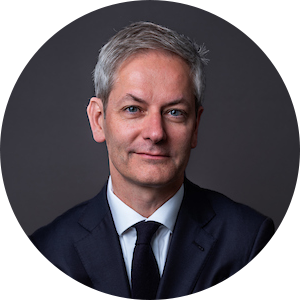
When you discover a problem with no solution, some people are deterred. Others set up a business to solve the issue. Bruno De Kegel is one of those.
He launched Arvella Investments in 2018, together with Benoît Mercereau.
Its aim - which he notes is enshrined in its shareholder agreement – is to deliver “outstanding investment results for our clients, alongside positive impact”.
After 23 years at Goldman Sachs, Mr De Kegel wanted to work out how to deliver superior risk adjusted returns for clients by incorporating sustainability.
He tells thewealthnet, together with his co-founder, he could not find the formula, so they decided to create it themselves.
The reasoning is simple.
“We believe that tomorrow’s winners in investment management will offer strategies that reconcile delivering outsized investment returns with delivering outsized impact, and that are grounded in deep investment knowledge and analytics,” Mr De Kegel explains.
Currently, the industry is struggling to have a real impact when it comes to sustainability.
“The problems all start [in the industry] from there being too many claims that are not backed up,” Mr De Kegel argues.
ESG investing needs “a revolution” to escape the current greenwashing backlash.
As a result, Arvella has developed a rigorous sustainability framework.
“Our approach calls for a mindset shift, namely that investors adopt ‘investment-friendly’ ESG practices which may boost returns,” he explains.
“In our experience, the prospect of higher returns incentivises firms and investors to deliver meaningful impact, creating a virtuous circle between returns and impact.”
Arvella will not buy ESG-labelled assets at any price, because the firm believes this can hurt long-term returns and will have limited impact.
The firm also distances itself from “naïve ESG portfolio construction rules” because they tend to increase portfolio risk.
Instead, the firm believes in helping third-party managers engage with their portfolio companies on targeted ESG issues that have the potential to unlock shareholder value. This in itself can create meaningful impact, Mr De Kegel suggests.
Arvella will not engage on too many issues with any one firm. Chief executives tend to be overloaded and are less likely to respond.
Instead, it looks to focus on one or two sustainability aspects that have a strong business case and could make a big difference.
So far, Arvella has had some successes at encouraging businesses to make positive changes.
However, “as a young company, we are in the early stages of applying our approach and so it is a continual work in progress,” Mr De Kegel acknowledges.
As this is such a key part of the business strategy, it forms part of the manager selection process. In fact, if managers are not open to engaging or do not have the ability to successfully engage, “it can become a deselection criteria”.
The firm also supports “rigorous 3-dimensional portfolio construction” to maximise risk-adjusted returns within an impact framework.
“We wanted to replace simple rules of thumb, such as negative screening or best-in-class, with science to address the investment, country and sector biases that result from such decision making,” Mr De Kegel explains.
Arvella believes in its strategy and wants to encourage others to follow its lead. To help with this, the firm took the unusual step of making its tools available for free.
Mr De Kegel explains there are a number of reasons Arvella took this decision.
Firstly, Arvella wants to promote impact beyond its own client base. Having its framework more widely adopted can significantly increase its impact.
Secondly, Mr De Kegel believes Arvella’s innovations could become mainstream. Therefore, “we did not see any value in keeping them behind closed doors”.
The last reason is to do with branding.
“We wanted to let other asset & wealth managers know that we are open to partner with them,” he explains.
Mr De Kegel sees two ways this could work: either through a distribution agreement; or by helping to launch innovative ESG strategies based on Arvella’s approach.
Indeed, Mr De Kegel says he would love to reach a distribution agreement with a large institution as this will “significantly magnify” the firm’s impact.
While it is still early days for Arvella, its reception has been very positive so far.
“It is fair to say that the response exceeded our expectations,” Mr De Kegel says.
Arvella has won the PAM Award for innovation for the past two years.
Additionally, it has entered into a research partnership with the Yale Initiative on Sustainable Finance.
Among its peers, Arvella is gaining traction too.
“We have started to receive reverse solicitations from other wealth & asset managers looking to partner with us, which is something we are keen to develop,” Mr De Kegel explains.







